Cambridge Healthtech Institute ’s Inaugural
Cell Therapy CMC and Manufacturing
19-20 March 2019
The success of cell-based therapies is underpinned by the ability to build scalable, robust, well controlled global manufacturing strategies in line with regulatory timelines, accelerated or otherwise.
Cambridge Healthtech Institute’s Cell Therapy CMC and Manufacturing conference takes an in-depth look at the practical challenges facing the manufacture of autologous and allogenic cell therapies at scale, with dedicated sessions
on upcoming regulations, new and existing analytical methods, flexible CMC strategies, product release, cell processing, scalability, bioreactors, next-generation production technologies, automation, closed systems, supply chain and facility design.
The meeting will feature extensive sessions on CAR-Ts.
Final Agenda
Monday, 18 March
13:00 - 16:00 Recommended Short Course*
SC2: Potency Assays for Cell and Gene Therapies
Instructor:
 Christopher Bravery, PhD, Consulting Regulatory Scientist, Consulting on Advanced
Biologicals, Ltd.
Christopher Bravery, PhD, Consulting Regulatory Scientist, Consulting on Advanced
Biologicals, Ltd.
Potency assays are an essential concept in determining the quality of any biological medicinal product/biologic. Extending this concept to cell and gene products is more challenging and often the most difficult aspect of characterising these products.
The relevance of the approach taken is often challenged by regulators both during development and when seeking market approval. This workshop will lead you through the issues and how to develop an overall potency strategy.
- What is potency and why is it so important?
- How do I develop potency assays?
- What are the regulatory expectations for potency assays?
*Separate registration required.
Tuesday, 19 March
7:00 Registration and Morning Coffee
8:25 Chairperson’s Opening Remarks
Christopher Bravery, PhD, Consulting Regulatory Scientist, Consulting on Advanced Biologicals Ltd.
8:30 FEATURED PRESENTATION: Regulatory Aspects of Manufacturing and Control of Genetically Modified Cells
 Matthias Renner, PhD, Scientist, Federal Institute for Vaccines and Biomedicines, Paul
Ehrlich Institute
Matthias Renner, PhD, Scientist, Federal Institute for Vaccines and Biomedicines, Paul
Ehrlich Institute
In respect to manufacturing and quality control, genetically modified cells are considered to be most complex medicinal products. Regulatory aspects considering the fundamental steps in manufacturing and control of these medicinal products will be presented,
and the regulatory framework for these products which are classified in the EU as advanced therapy medicinal products and are regulated centrally by the European Commission and the European Medicines Agency will be given.
9:00 Regulatory Strategies for Cell and Gene Therapies
Vicki Coutinho, PhD, Senior Director, Regulatory Affairs, Autolus
Cell therapies are inherently more complex than standard biologics or new chemical entities. This presentation aims to address specific nuances for a cell therapy Investigational New Drug (IND) application and non-clinical considerations. An overview
of the different expedited programs will also be reviewed.
9:30 KEYNOTE PRESENTATION: GMP for ATMP Manufacturing: An Industry Experience with Kymriah
 Florence Salmon, PhD, Director Regulatory Affairs CMC, Novartis Pharma AG
Florence Salmon, PhD, Director Regulatory Affairs CMC, Novartis Pharma AG
Advanced therapy medicinal products (ATMP) are an emerging class of innovative biopharmaceutical medicines. Using Kymriah as an example, this presentation aims to provide an insight into the GMP requirements for ATMP manufacturing.
 10:00 Grand Opening Coffee Break in the Exhibit Hall with Poster Viewing
10:00 Grand Opening Coffee Break in the Exhibit Hall with Poster Viewing
10:45 ATMPs: Are We There Yet?
 Christopher Bravery, PhD, Consulting Regulatory Scientist, Consulting on Advanced
Biologicals Ltd.
Christopher Bravery, PhD, Consulting Regulatory Scientist, Consulting on Advanced
Biologicals Ltd.
Since 2001 there have been 23 ATMPs submitted to the EMA, of these 12 have been approved (one outstanding). But of those products authorised greater than five years ago, none remain on the market. This talk will discuss the details of these approvals
and the reasons for failure.
11:15 Developing Manufacturing Processes for the Production of Gene-Edited Allogeneic CART-Cells
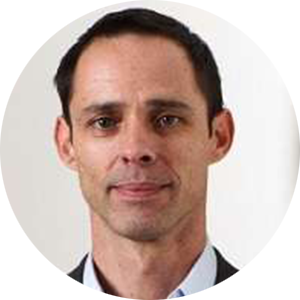 Jean-Charles Epinat, PhD, Head of Process Development, Cellectis
Jean-Charles Epinat, PhD, Head of Process Development, Cellectis
Gene-editing has enabled off-the-shelf allogeneic CAR-T product candidates to reach the clinic. It is also endowing engineered cells with multiple new features, enhancing their capabilities and functions to better address cancer. Hindsight in industrializing
these immuno-oncology products and the human clinical experience with the first cases in ongoing trials signal practical avenues for their further deployment and shed light on the transformative role they will play in the anti-cancer arsenal.
11:45 Panel Discussion: Ask the Regulators
Moderator: Christopher Bravery, PhD, Consulting Regulatory Scientist, Consulting on Advanced Biologicals Ltd.
Panelists:
Matthias Renner, PhD, Scientist, Federal Institute for Vaccines and Biomedicines, Paul Ehrlich Institute
Florence Salmon, PhD, Director Regulatory Affairs CMC, Novartis Pharma AG
Vicki Coutinho, PhD, Senior Director, Regulatory Affairs, Autolus
12:15 Luncheon Presentation (Sponsorship Opportunity Available) or Enjoy Lunch on Your Own
12:45 Session Break
13:30 Chairperson’s Remarks
Paula M. Alves, PhD, CEO, IBET; Director Animal Cell Technology Unit, ITQB NOVA
13:35 Commercialization hurdles in pluripotent stem cell derived therapeutics for the heart and brain
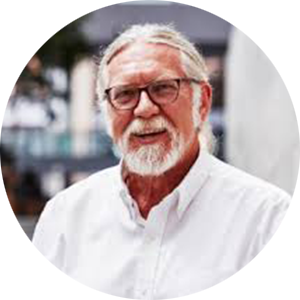 Robert Deans, PhD, CTO, Bluerock Therapeutics
Robert Deans, PhD, CTO, Bluerock Therapeutics
BlueRock Therapeutics is a next-generation regenerative medicine company developing best-in-class cell therapies for the brain, heart and blood. BlueRock has built an industry-leading platform combining sophisticated control of development biology with gene editing to synthesize allogeneic cell products with durable regenerative therapeutic properties. BlueRock will discuss the utility of machine learning in new bioprocess design, and development of a cell plus gene chassis for payload delivery.
14:05 Improving Functional Maturation of Human Pluripotent Stem Cells Derived Cardiomyocytes through Metabolic Understanding
 Paula M. Alves, PhD, CEO, IBET; Director Animal Cell Technology Unit, ITQB NOVA
Paula M. Alves, PhD, CEO, IBET; Director Animal Cell Technology Unit, ITQB NOVA
In vitro differentiation of human pluripotent stem cells into cardiomyocytes (hPSC-CMs) is a crucial process to enable their application in cell therapy and drug discovery. Despite the remarkable efforts towards the
optimization of cardiac differentiation protocols, generated hPSC-CMs are still immature, closely reminiscent of fetal cardiomyocytes. In this study, we aim to overcome this hurdle by devising a novel metabolic-based strategy to improve hPSC-CMs
generation and functionality. Noteworthy, we integrated structural and functional analyses of hPSC-CM with powerful “omics” technologies (proteomics, transcriptomics, metabolomics and fluxomics) as complementary analytical tools
to support process optimization and product characterization.
14:35 Controlling Cell and Gene Therapy Manufacture through PAT
 Damian Marshall, PhD, Head, Analytical Development, The Cell and Gene Therapy Catapult
Damian Marshall, PhD, Head, Analytical Development, The Cell and Gene Therapy Catapult
Developing reliable, cost-effective processes for cell and gene therapy manufacture is a significant challenge. For autologous products, this challenge can be even greater due to the variability of the patient-specific starting material and the
lack of real-time process data. In this presentation we will show how optical biosensors can be applied for process monitoring to track cell behavior and gain higher level process control.
15:05 Refreshment Break in the Exhibit Hall with Poster Viewing
15:45 Closed System Manufacturing for Adoptive T-Cell Therapies
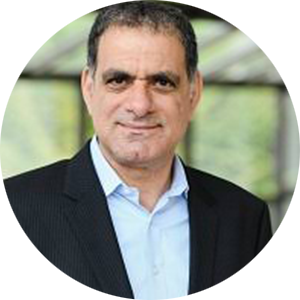 Ali Mohamed, PhD, Vice President, CMC, Immatics
Ali Mohamed, PhD, Vice President, CMC, Immatics
Immatics developed a proprietary tumor antigen targets discovery platform which identifies novel tumor-specific targets and TCR candidates. It also screens TCR candidates based on these targets against off-target toxicities in absence of reliable
in vivo models. Extensive process development was carried out using primary T cells derived from multiple healthy donors and cancer patients to optimize each step in the manufacturing of TCR T cells for 3 clinical
trials (IMA101, IMA201, IMA202, and IMA203). Manufacturing for engineered TCR T cell therapies has been adapted into 3 different closed systems for future phases of clinical trials with excellent results.
16:15 Large Scale Production of LV and RV Vectors for T- and CD34+ Cells Transduction
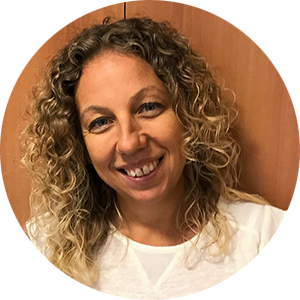 Giuliana Vallanti, PhD, Director, Development & Quality Control,
Qualified Person, MolMed
Giuliana Vallanti, PhD, Director, Development & Quality Control,
Qualified Person, MolMed
Lentiviral vectors (LV) and retroviral vectors (RV) are important starting materials used in gene therapy studies. A manufacturing challenge is the optimization of vector production in large-scale platforms. In MolMed we are developing two
different LV/RV production systems using Pall iCELLis® fixed-bed disposable bioreactors. Full scale runs in Pall iCELLis bioreactor were already performed and results modeling the number of patients that can be treated with a single
batch of vector will be presented.
16:45 Breakout Discussion Groups
This session provides the opportunity to discuss a focused topic with peers from around the world in an open, collegial setting. Select from the list of topics available and join the moderated discussion to share ideas, gain insights, establish
collaborations or commiserate about persistent challenges. Then continue the discussion as you head into the lively exhibit hall for information about the latest technologies.
Table 1: CMC and Regulation of Cell-based Therapies
Moderators:
Florence Salmon, PhD, Director Regulatory Affairs CMC, Novartis Pharma AG
Matthias Renner, PhD, Scientist, Federal Institute for Vaccines and Biomedicines, Paul Ehrlich Institute
- Most common questions asked by companies/ regulators
- Process change and comparability
- Challenges around gene-edited cell therapies
- Preparing for filing– What are the priorities, preclinical packages?
Table 2: Commercialisation and Large-Scale Production
Moderators:
Robert Deans, PhD, CTO, Bluerock Therapeutics
Paula M. Alves, PhD, CEO, IBET; Director Animal Cell Technology Unit, ITQB NOVA
- What are the most important problems that need to be solved over the next 3-5 years for this industry to thrive?
- What key innovations would you like to see that you believe would be transformative?
- How low do COGS need to go, and how (and when) will we get there?
- How automated and integrated will cell therapy manufacturing become over the next 5-10 years? What parts of the workflow are most ripe for integration, and which are not?
17:30 Welcome Reception in the Exhibit Hall with Poster Viewing
Wednesday, 20 March
8:00 Registration and Morning Coffee
8:25 Chairperson’s Remarks
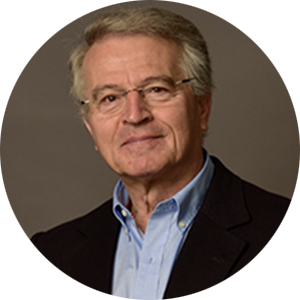 Manuel Carrondo, PhD, Professor of Chemical and Biochemical Engineering, FCT-UNL;
Vice President, IBET
Manuel Carrondo, PhD, Professor of Chemical and Biochemical Engineering, FCT-UNL;
Vice President, IBET
8:30 Early Cost of Goods Evaluation as a Tool for Process Decision
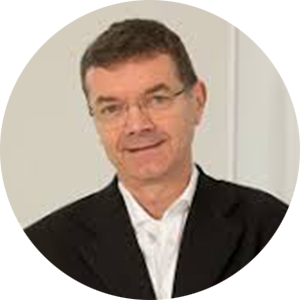 Benoit Champluvier, PhD, Independent Consultant, BCMCS, former Chief
Technology and Manufacturing Officer, Bone Therapeutics, Belgium
Benoit Champluvier, PhD, Independent Consultant, BCMCS, former Chief
Technology and Manufacturing Officer, Bone Therapeutics, Belgium
This presentation will examine cell therapy solutions for bone defects and spinal fusion procedures. Future manufacturing process shall deliver products with a sustainable cost/benefit. COGS analysis early in the projects is key to define
the process development strategy. Advantages and limitations of early COGS assessment will be discussed.
9:00 Safety and Efficiency of Viral Genes for Cell Therapy
Rolf Werner, PhD,. Professor, University of Tuebingen
9:30 Engineering Scalable Manufacturing of High-Quality Human MSC for Cell Therapy: From Up to Downstream Processing Integration to Cell Proteome Characterization
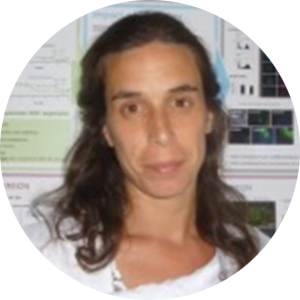 Margarida Serra, PhD, Senior Scientist, iBET- Instituto de Biologia Experimental
e Tecnológica
Margarida Serra, PhD, Senior Scientist, iBET- Instituto de Biologia Experimental
e Tecnológica
The aim of our work was to prove the scalability of an integrated bioprocess compatible with current good manufacturing practices (cGMP) comprised by cell expansion, harvesting, volume reduction and washing unit operations using human mesenchymal
stem cells (hMSC) isolated from bone marrow and adipose tissues. Single-use technologies were adopted at different steps of the manufacturing workflow to support process integration and scale-up. Alongside the standard quality assays for
evaluating hMSC’s CQA, a proteomics workflow based on mass spectrometry tools was established to characterize the impact of processing on hMSC’s CQA.
10:30 How Much Information Do I Need to Present for the Vector of My Genetically Modified Cell Product?
 Christopher Bravery, PhD, Consulting Regulatory Scientist, Consulting
on Advanced Biologicals, Ltd.
Christopher Bravery, PhD, Consulting Regulatory Scientist, Consulting
on Advanced Biologicals, Ltd.
How do regulatory agencies view the vector of a genetically modified cell? Does the vector need to be GMP; from what point in manufacture would this apply? Can I use a drug masterfile? How much information, including data, should I provide
in the dossier for clinical trials; will this be different for approval?
10:30 Coffee Break in the Exhibit Hall with Poster Viewing
11:15 Chairperson’s Remarks
 Manuel Carrondo, PhD, Professor of Chemical and Biochemical Engineering, FCT-UNL;
Vice President, IBET
Manuel Carrondo, PhD, Professor of Chemical and Biochemical Engineering, FCT-UNL;
Vice President, IBET
11:20 Bioprocessing Innovations in the Era of Clinical Acceleration and Process Intensification

Stefanos Grammatikos, PhD, Vice President, Head, Biotech Sciences, UCB Pharma
Current trends in clinical development acceleration and bioprocess intensification impose an unprecedented compression of CMC development timelines and new bioprocessing challenges downstream of the cell culture bioreactor. In this talk I
will present a series of innovations we have introduced, some incremental and some potentially disruptive, in an effort to avoid further complications while rising to the latest challenges of bio CMC development and bioprocessing.
11:50 Opportunities and Challenges in CAR T Manufacturing
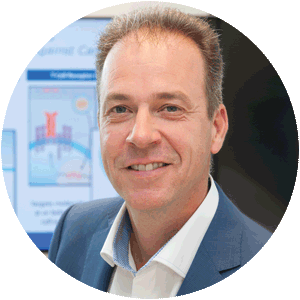
Markwin Velders, PhD, Vice President, Operations, Managing Director, Kite Pharma EU B.V.
Update on the status of CAR-T development for use in the treatment of cancer. The success story of this paradigm shift and the challenges and opportunities that lay ahead for this therapy will be presented and discussed.
12:20 End of Conference
12:30 Bridging Luncheon Presentation (Sponsorship Opportunity Available) or Enjoy Lunch on Your Own